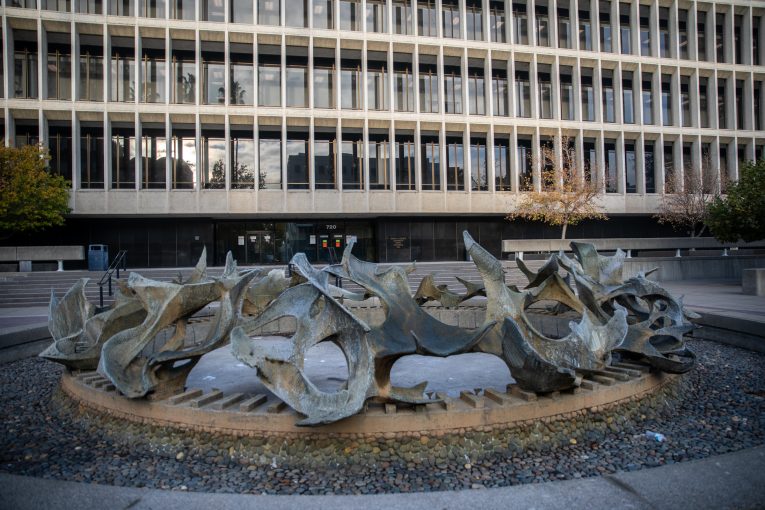
 By: Katherine Coviello and Gabriel Eskandari
By: Katherine Coviello and Gabriel Eskandari
SACRAMENTO, CA – In Sacramento County Superior Court Monday, Judge Helena R. Gweon dismissed a nearly nine-year-old case after Defense Attorney Josh Kaizuka filed a motion charging the constitutional right to a speedy trial of his client “M—-“* was violated.
*(NOTE: Not accused real name. The Vanguard does not normally name those accused of misdemeanors.)
M—- was facing three misdemeanor charges including DUI, excessive blood alcohol levels, and driving without a proper license.
Kaizuka began by arguing against the prosecution’s focus on the defense not being able to find actual prejudice and against the prosecution’s application of case law that he stated applies to felonies rather than misdemeanors.
Kaizuka argued an eight-and-a-half-year delay is enough to show presumptive prejudice, and that presumptive prejudice is enough to dismiss a misdemeanor charge, citing Doggett v. United States.
Kaizuka added, “This particular case, it’s nearly a nine-year delay. My client was not a fugitive. In fact, she had contact with a local police department when she was a victim of a domestic violence case. The District Attorney’s office prosecuted her abuser. And, later, she went back to the Rancho Cordova Police Department to apply for a U visa as a victim. So, she’s had multiple contacts with law enforcement, and actually I’d presume the DA’s office.”
Kaizuka also addressed the prosecution’s argument that M—- had not updated her DMV information, stating that she was undocumented and did not have a driver’s license at that time, noting, “She applied for a license when she was able to get a license with the change of laws. And that’s when the DA’s office updated or found her current address.”
According to Kaizuka, M—- was unaware of a pending case until Jan. 2021 despite this contact with the police department, DMV, and DA’s office over the last nine years.
“She wasn’t trying to hide out. She was paying her taxes. She was paying the lease in her name,” Kaizuka said, also asserting that, despite the prosecution conceding to knowing her address since 2018, it did not take action until 2021.
Deputy District Attorney Storm Brandenburg first argued against Kaizuka’s interpretation of Doggett v. United States: “Under Doggett and similar law, even with the presumption of prejudice which is raised by the length of the delay, there must be shown to be actual prejudice.”
DDA Brandenburg stated that he believes there was not substantial actual prejudice in the case because they still had the reports, test results, and officers.
Regarding M—-’s contact with law enforcement, DDA Brandenburg stated, “The case that she was the victim in did not go to trial so there was not extensive contact with her as a victim and she was actually listed in that case as a Doe witness so she was not giving any reason to have a warrant check run on her.”
DDA Brandenburg additionally claimed that because she did not update her address with the DMV due to her undocumented status, she was choosing to not make her address known, and that once it was updated, that’s when the prosecution process began to move along and she turned herself in soon after.
Judge Gweon then revisited the case law dispute, commenting, “It seems like there’s a difference in opinion of what law exactly applies here. Mr. Kaizuka, what is the standard here? The DA is saying actual prejudice must be found.”
“No, that applies to felony cases,” responded Kaizuka. “In a misdemeanor case, if it exceeds one year between the time of arrest or filing the complaint, and arraignment, then there’s presumptive prejudice, and it becomes more of a weighing factor as time goes on.”
Judge Gweon asked DDA Brandenburg if he agreed, and he stated that his understanding was that in California presumptive prejudice does not arise from the delay of filing a complaint, and that it must be actively demonstrated.
Kaizuka then mentioned that the blood evidence had since been destroyed, that the passenger who was with his client had been the abuser in her case a year later and has since been deported and is unable to testify, and that the abuser had basically forced her to drive because he had too much to drink.
When asked by Judge Gweon, DDA Brandenburg conceded that there was no in-car camera at the time because they were not being widely implemented yet, that the catalogs had been purged, the blood box had been destroyed, and the officer who pulled Quezada-Ruiz over had since retired.
Ultimately, Judge Gweon granted the defense’s motion to dismiss the charges on the basis of lack of a speedy trial.
Judge Gweon reasoned M—- never tried to flee and “actually had multiple contacts with law enforcement,” thus stating that the reason for the delay did not seem attributable to anything the defendant did.
Judge Gweon also stated that she saw no evidence of the government trying to take action to serve a warrant other than mailing it initially and then serving it after the address was updated, despite Quezada-Ruiz paying taxes, rent, and utilities in her name.
In addition to finding presumptive prejudice due to the delay, Judge Gweon stated that she also found actual prejudice because “specific pieces of evidence are now not accessible to the defendant.”


